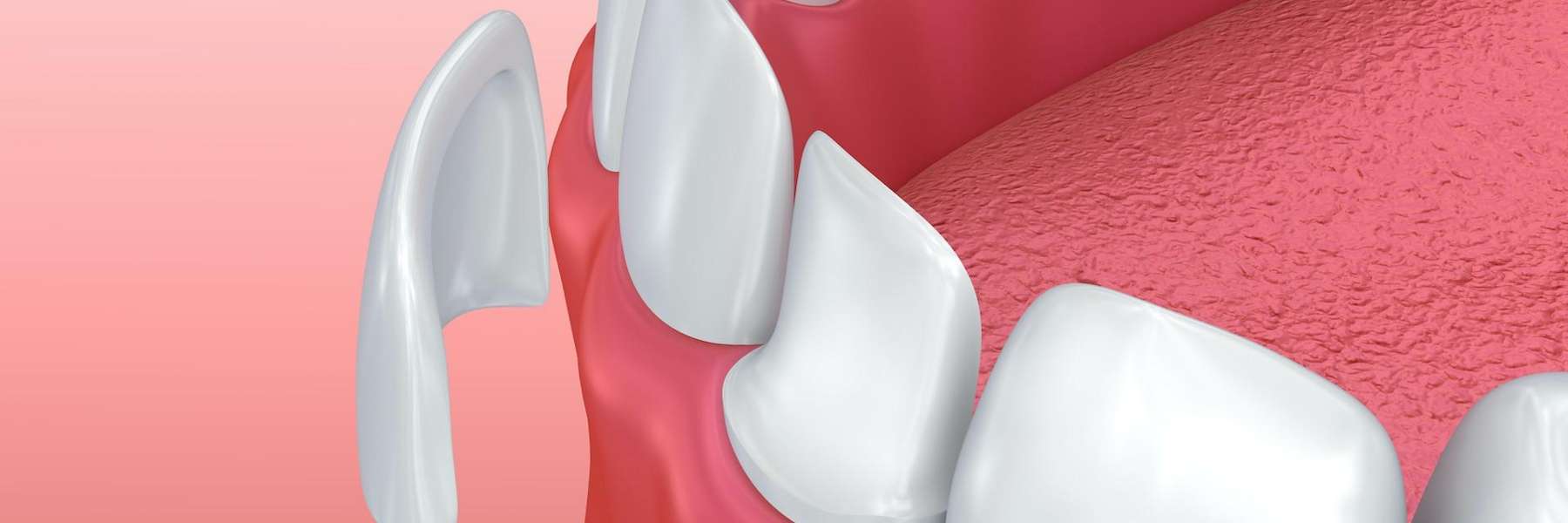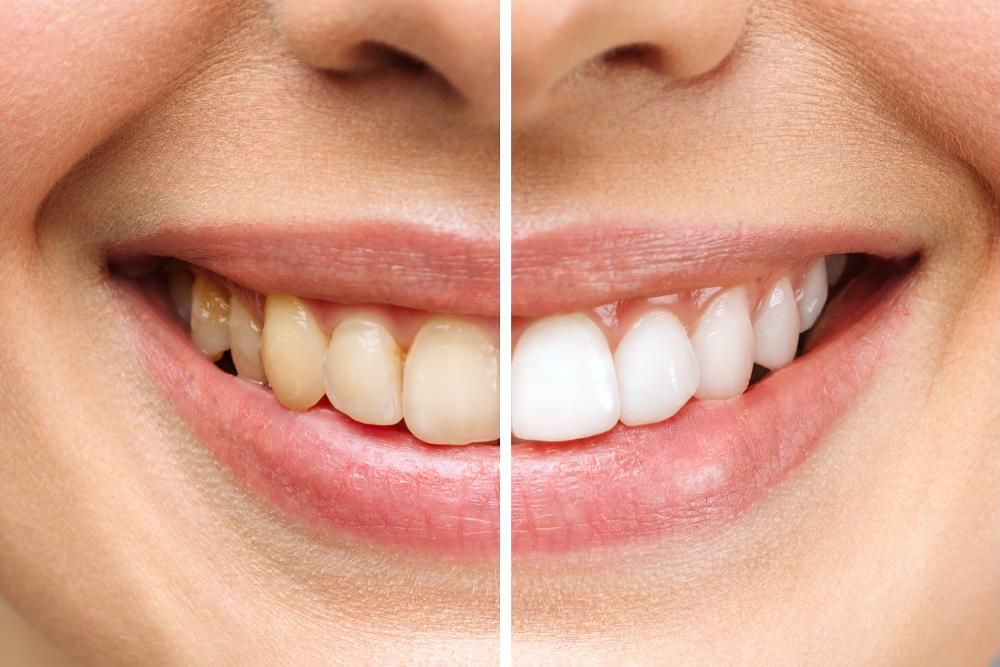
Porcelain veneers are like a fast track to your dream smile—can they go the distance? Absolutely! With the right care, porcelain veneers can last several years, often giving patients over a decade of confident and radiant smiles!
The key to their long-lasting shine? Consistent maintenance! With proper upkeep, your Hollywood-worthy glow will stay radiant for the long haul. Let’s explore porcelain veneers—their durability and simple ways to ensure they keep you smiling bright for many years to come.
What Are Porcelain Veneers?
Porcelain veneers are thin shells, custom-made from dental-grade porcelain, that are bonded to the fronts of discolored, misshapen, or misaligned teeth. Thanks to their natural look and relatively easy application, porcelain veneers are widely regarded as efficient and straightforward long-term smile restorations.
It’s important to remember porcelain veneer placement, though non-invasiveness, is considered irreversible, as it requires the removal of a small layer of tooth enamel — this is not true of composite veneers. However, they are less durable and offer a far shorter lifespan than porcelain.
It’s also worth keeping in mind, while their impact is profound, porcelain veneers are merely a cosmetic solution and do not address underlying issues like tooth decay or gum disease. Anyone suffering from these issues should seek treatment before having porcelain veneers placed.
How Long Do Porcelain Veneers Last?
Typically, porcelain veneers last anywhere between 10 to 15 years. However, especially well-maintained veneers can last even longer — 20 years or more! What’s the secret to making your veneers last so long? Proper care and regular dental visits are significant, to be sure. However, dental veneer durability depends on several other factors.
Factors That Affect Porcelain Veneers’ Lifespan
The longevity of porcelain veneers isn’t set in stone. Several factors play a role in maximizing their lifespan. The most important of these include:
- Material quality — All dental veneers are not identical. Top-quality porcelain veneers last longer and offer more durability than their composite counterparts.
- Oral hygiene habits — Just because veneers cover a person’s natural teeth doesn’t mean they protect against the pitfalls of poor oral hygiene. Proper brushing, flossing, and dental cleanings are essential to maintain the health of teeth and gums underlying dental veneers.
- Natural bite and chewing habits — If a person chronically clenches or grinds their teeth (bruxism) or frequently chews or bites into hard foods and objects —ice cubes, unshelled nuts, popcorn kernels, pens, fingernails — their veneers may not last as long as possible. Such issues must be addressed to avoid damage and maximize the lifespan of veneers.
- Routine dental checkups — Regular dental visits are crucial to veneer longevity. Seeing your dentist every six months (more or less) will help ensure your veneers’ condition and that potential issues are addressed in their early stages.
Daily Care Tips for Proper Porcelain Veneer Maintenance
Porcelain veneers are, without a doubt, highly durable. They are not, however, invincible. Porcelain veneers require proper daily care to maximize their lifespans. Among the routine steps you can take to keep your veneers looking their best:
- Select a soft-bristled toothbrush — Over time, hard-bristled toothbrushes can scratch the surface of dental veneers and dull their appearance. When choosing a new toothbrush, opt for one with non-abrasive, soft bristles.
- Choose your toothpaste carefully — Similarly, abrasive toothpaste (and whitening toothpastes in particular) can wear down the polished surface of porcelain veneers. Look for a toothpaste formulated to protect enamel while keeping teeth bright.
- Daily flossing — Plaque and food particles can accumulate between dental veneers and natural teeth. It’s vital to gently floss daily, taking care to avoid damaging the edges of the veneers or your gums.
- Rinse With caution — Some mouthwashes contain alcohol, which can weaken the dental cement that bonds dental veneers to teeth. To avoid this risk, look for an alcohol-free mouthwash to keep your mouth fresh and teeth and gums bacteria-free without risking the stability of your veneers. Listerine® Zero Alcohol Mouthwash is a refreshing, alcohol-free option that helps maintain oral hygiene without compromising veneers. Alcohol has also been linked to oral cancer.
Habits to Avoid to Maximize Veneer Longevity
Even with diligent brushing and flossing, certain habits can impact the longevity of porcelain veneers. Here are a few of the most prominent:
- Avoid biting hard objects — Biting into ice, hard candy, and unpitted olives, or using your teeth as tools (to open packages, for instance) can cause veneers to chip or crack. While porcelain veneers are strong, they’re not as strong as natural teeth.
- Stop using tobacco — Though porcelain veneers are stain-resistant, smoking and smokeless tobacco products can impact the appearance of your smile by discoloring the edges of veneers and the gum tissue surrounding them.
- Limit intake of staining foods and beverages — Porcelain veneers are more stain-resistant than natural teeth. However, they’re not impenetrable. As with natural teeth, frequent consumption of coffee, tea, red wine, and red berries can lead to staining over time. Whenever possible, rinse your mouth with water after consuming these foods and beverages.
- Take precautions against nighttime teeth grinding — Bruxism (excessive teeth grinding) punishes veneers, accelerating their deterioration from wear and tear. If you grind your teeth while sleeping, consult your dentist about getting a custom nightguard to wear to bed.
When Do Porcelain Veneers Require Replacement?
Even with the utmost care, porcelain veneers won’t last forever. Here are some signs that a new set may be in order:
- Chipping or cracking — If veneers are damaged due to trauma or wear and tear, they should be replaced to maintain bite integrity and smile aesthetics.
- Staining and discoloration — Veneers can become discolored over time, especially around the edges.
- Gum recession — Gums recede naturally with age. As this happens, it can affect the fit of porcelain veneers, with the exposed areas prone to damage or staining.
- Wear and tear — After 15+ years, almost all veneers will show signs of wear and require replacement for optimal aesthetics and functionality.
If you've noticed any of these issues, or are simply seeking advice on maximizing the lifespan of your veneers, your wisest move is to schedule a consultation with your cosmetic dentist. During these visits, they will evaluate the condition of your veneers, provide personalized maintenance tips, and discuss repair or replacement options.
Ensuring the Longevity of Porcelain and Composite Veneers in South Charlotte, NC
If you’re in South Charlotte and want to learn more about the many benefits of dental veneers and how to keep them in optimal condition for as long as possible, contact dentist Dr. Sergei Shirman and the caring and skilled Dental Wellness of Charlotte team to schedule a consultation!

